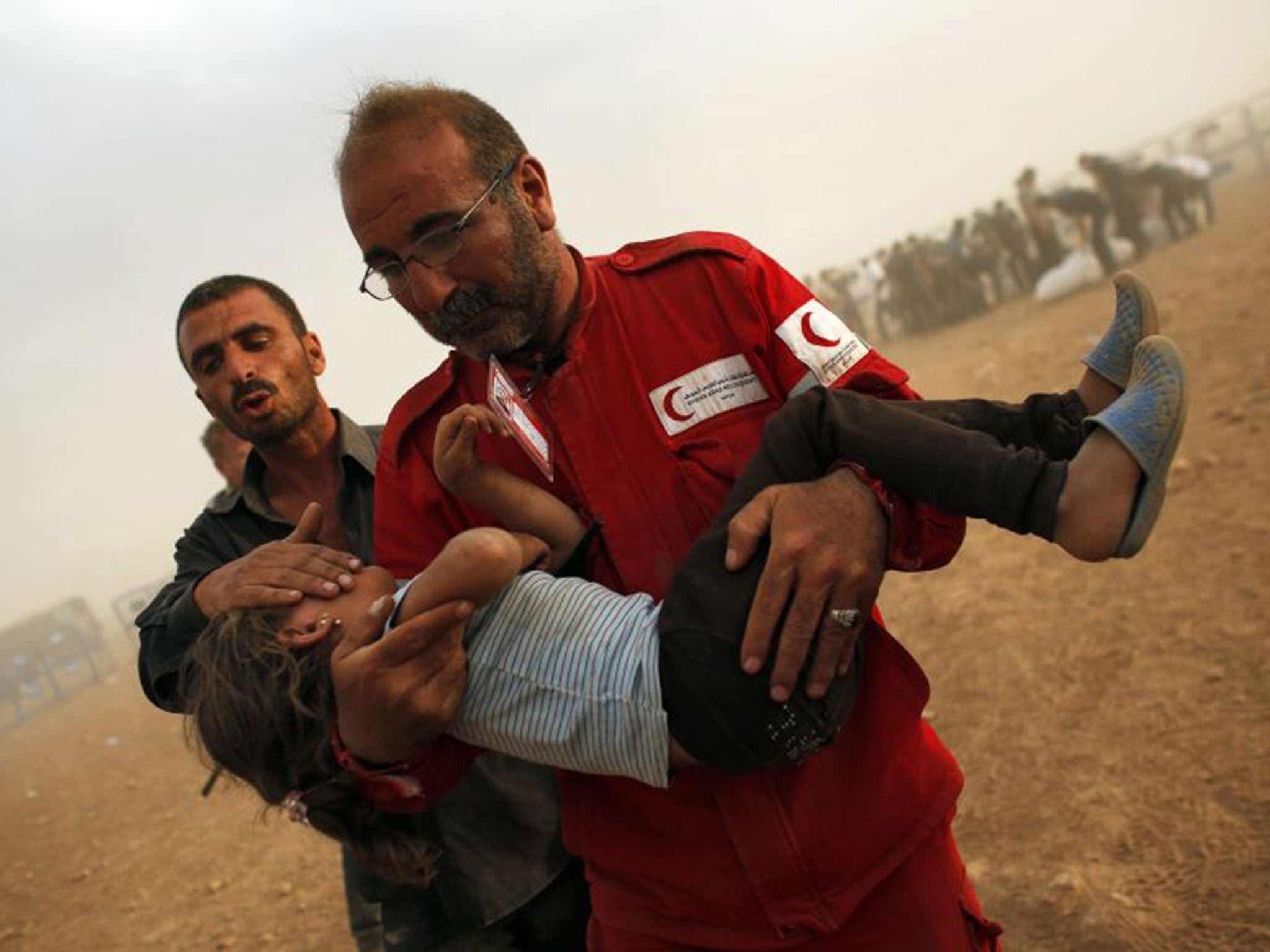Isis in Syria: Turkish hospitals open their doors to the Kurdish casualties they once regarded as terrorists

Your support helps us to tell the story
From reproductive rights to climate change to Big Tech, The Independent is on the ground when the story is developing. Whether it's investigating the financials of Elon Musk's pro-Trump PAC or producing our latest documentary, 'The A Word', which shines a light on the American women fighting for reproductive rights, we know how important it is to parse out the facts from the messaging.
At such a critical moment in US history, we need reporters on the ground. Your donation allows us to keep sending journalists to speak to both sides of the story.
The Independent is trusted by Americans across the entire political spectrum. And unlike many other quality news outlets, we choose not to lock Americans out of our reporting and analysis with paywalls. We believe quality journalism should be available to everyone, paid for by those who can afford it.
Your support makes all the difference.The broken pieces of Ronahi El Hamu's shoulder are held together by metal. She was hit a week ago by a bullet fired by Islamic State (Isis).
Now Ms El Hamu is recovering in a state hospital in the Turkish city of Sanliurfa, close to the Syrian border. "I want to get out of here," she said. "I want to go back to Kobane and fight, even with this metal in my shoulder."
She is a fighter for the People's Protection Units, known by its Kurdish acronym YPG. The group has been resisting heavy Isis attacks for two weeks on several fronts around Kobane, on the Turkish border.
Wounded YPG fighters are being brought to Turkish state hospitals, a development widely viewed as remarkable since the YPG is affiliated with the PKK, the Kurdistan Workers' Party, which has been at war with Turkey for 30 years and is branded a terror group in the West.
Heavily wounded fighters are taken to hospitals in Sanliurfa, the lightly wounded to doctors in Suruc, some six miles from the Syrian border. All fighters wear civilian clothes when they arrive.
Ethem Sahin, an experienced physician who volunteers at the Suruc hospital, said: "There is an understanding with the border police: don't come to Turkey wearing your YPG uniform. All wounded are first taken to a clinic in Kobane, for first aid such as pain killers and bandages. There, their combat outfit is changed for civilian clothes."
In the hospital system, the fighters are registered as "guests from Syria". Some give their real names, others use an alias. None of the fighters stay in the hospital one minute longer than absolutely necessary, said Ethem Sahin. "They are taken to private homes for further recovery. Then they disappear."
Disappear they might, but it is widely known they return to Kobane to resume fighting against Isis.
One of the fighters being treated in Suruc state hospital is Zelal, (not her real name), 19. Underneath the bandage on her arm is a deep wound, caused by shrapnel. She does not like being in a Turkish state hospital.
"Turkey suppresses Kurds," she said. "And now I receive their care. I hate it. But the physicians gave me no choice, I need treatment and this is the only place we can go."
In the Sanliurfa hospital, Ronahi El Hamu does not feel particularly comfortable in a Turkish state hospital bed either. "The Turkish authorities don't do much to stop Turks from joining Islamic State," she said. "So it's partly thanks to Turkey that we fight this war in the first place." Then she cleared her throat and started singing a Kurdish battle song.
The state appointed governor of Suruc, Adbullah Ciftci, admits that YPG fighters are coming to state hospitals. He estimates that in the past two months, some 300 YPG fighters were treated in Turkey. "In wartime the normal law doesn't apply," he explained. "We help people regardless of who they are."
Does that include wounded Isis fighters too, he was asked. It is claimed that the Islamists go to hospitals in the Akcakale area, around 45 miles to the east, where the border crossing is in the hands of Isis.
"I can't comment on that," Mr Ciftci said. "I am only responsible for this area."
Subscribe to Independent Premium to bookmark this article
Want to bookmark your favourite articles and stories to read or reference later? Start your Independent Premium subscription today.
Join our commenting forum
Join thought-provoking conversations, follow other Independent readers and see their replies
Comments